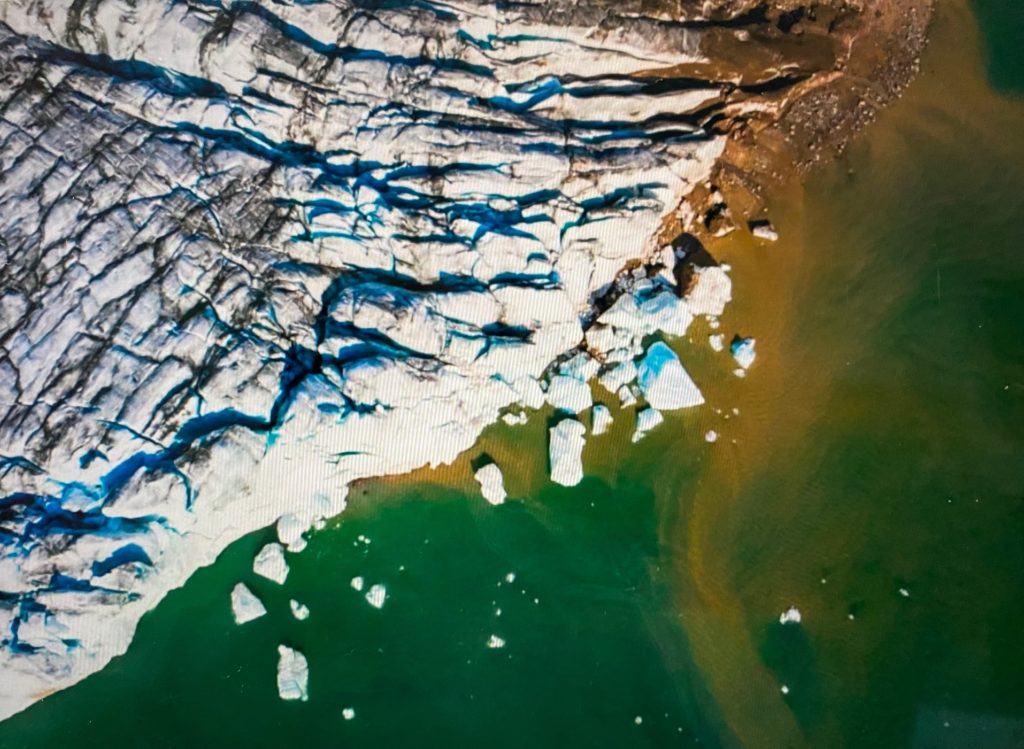New 28 Trillion Ton Ice Melt Could Banish Coastal Communities Forever?
Greetings! My latest blog unfortunately, has more sobering news for you on climate change. Since 1994 a total of 28 trillion tons of ice has melted globally, according to “a study that shocked the U.K. researchers who conducted it.” This research plays out the “worst-case scenario that was predicted by the Intergovernmental Panel on Climate Change 30 years ago. Scientists from Leeds and Edinburgh universities and University College London predict that by the end of this century, sea level could rise by more than 3 feet.”
The scientists studied the Earth’s ice-covered surfaces via satellite imagery. These included, “glaciers, mountains and poles to determine the amount of ice melt triggered by global heating caused by rising greenhouse gas emissions.” One of the study’s co-authors, Professor Andrew Shepherd, Director of the Leeds University Centre for Polar Observation and Modeling said, “It’s the first study to examine loss of ice coverage from every region of the planet.” Professor Shepherd and his team previously did research on ice loss in Antarctica and Greenland. Shepherd continued and said, “But when we added everything up together, we saw similar amounts of ice being lost in every corner of the planet, actually. And so that multiplied up what we’d been looking up from Antarctica alone, for instance, to a number that was much, much bigger and really quite worrying.” Professor Shepherd said, “The total ice melt measures out to about a trillion tons each year — and the Earth’s ice continues to melt. The rate of ice loss has risen by 57% since the 1990s, from 0.8 to 1.2 trillion tons of ice per year. To put that total of 28 trillion tons in perspective, it would cover an area about the size of the U.K. If you spread all of that ice on the U.K., for instance, where I live, it would be 100 meters thick, 330 odd feet. I mean, that’s a thick layer of ice, and the U.K. is not a small country.”
Shepherd’s research looked at two kinds of ice on Earth. He explained, “The ice on the ground and the ice that’s normally floating in the sea. If the ice that is normally above land melts into the sea, it will cause sea level to rise. Every centimeter of sea level rise that’s about a third of an inch, means a million people will be displaced. Sea level rise often presents a bigger problem for low-lying islands, leading many people to believe they won’t be affected by it. But it’s become increasingly apparent that the bigger threat to our lifestyles and also livelihoods is coastal flooding when we have intense storms which superimpose themself upon the mean sea level.”
Scientists forecast sea level to rise by an average of 50 centimeters over the next few decades. Shepherd said, “[This] increases the frequency of coastal flooding. So, these coastal flooding events will become much more common than in the past. We expect an extra million people to be flooded once per year with every centimeter of sea level rise. The ice melting on the surface of the ocean is also concerning because those ice sheets keep Earth cooler. That ice melt will also speed up the rate of sea level rise.”
According to Shepherd’s research, “The surface temperature of the planet has risen by 0.85 degrees Celsius since 1880, which has in turn driven up sea and atmospheric temperatures and led to this catastrophic ice loss. If you retreat the sea ice, particularly in the Arctic Ocean, but also now in the Southern Ocean, you just bring forward in time the sea level rise that we thought might be 50 or 100 years away. It’s going to happen sooner because the floating ice is melting, too.”
These unfortunate conclusions “affirm the IPCC’s worst fears reported in the group’s first assessment report 30 years ago, which confirmed that climate change was real and was caused by increasing levels of greenhouse gases from burning fossil fuels.”
This new report comes in the middle of “an unprecedented [COVID 19] pandemic and residual economic collapse across the world.” Shepherd continued and said, “The experience of 2020 has taught people that they can adapt their lifestyles, which means similar measures could be taken to slow down climate change. We’ve learned through this natural experiment that the world doesn’t end when we change our lifestyles, and we can continue and be prosperous. And so it’s been a little bit of a fortunate experiment because people can’t say now that we can’t adapt to climate change.”
Stay tuned for more of my blogs!
If you see any sick or injured manatees, please call the Florida Fish and Wildlife Conservation Commission at: 1-888-404-FWCC. They are the folks who are responsible for rescuing us in Florida.
Here’s the Save the Manatee Club link to learn more about us manatees …
Here’s a cool link for you to learn more about how we’re rescued and brought into rehabilitation …
~ Kobee Manatee
Related Posts
NASA Reveals Solid Scientific Evidence “Climate Change” is Undoubtedly Real! (August 25, 2016)
Could Climate Change Wipe Out Coral Reef Fish? (November 8, 2017)
A National Geographic’s Top 20 Must-See Haven Sinking into Rising Waters of Climate Change! (March 9, 2017)
Are You Ready for Coastal Flooding every Two Weeks from Climate Change? (June 21, 2018)
UNESCO – Its Paramount Role in Ocean Acidification Awareness, (January 8, 2016)
